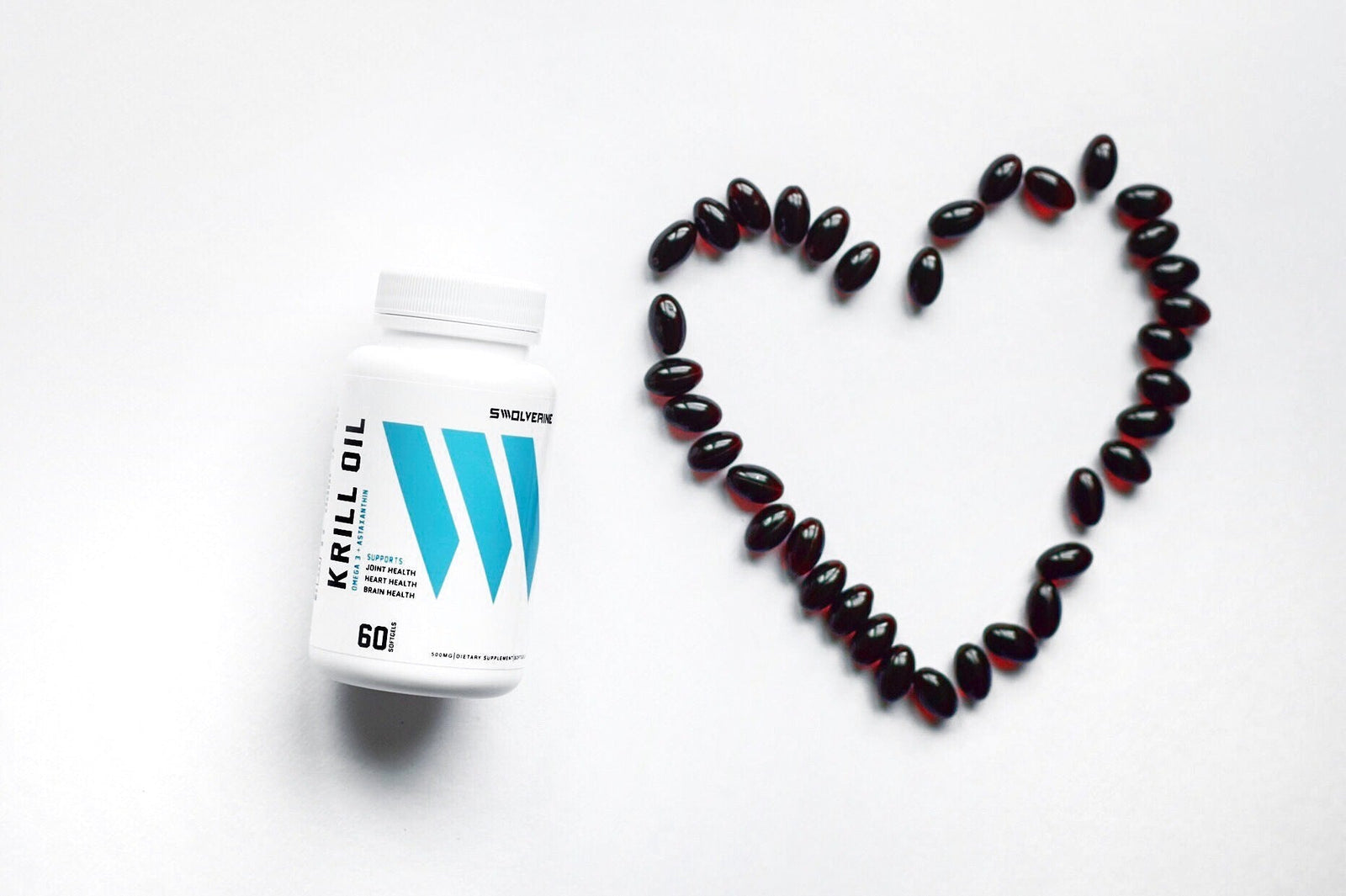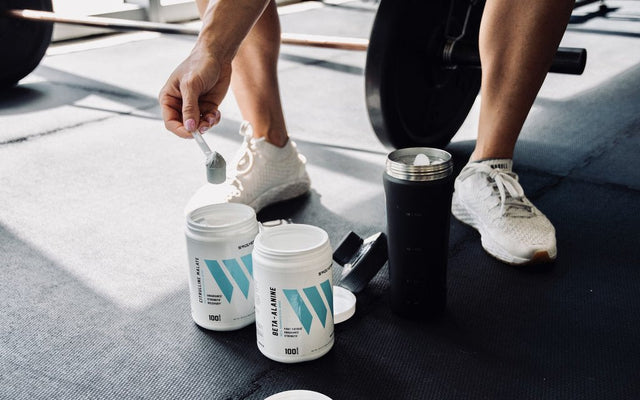The massive surge in proposed health benefits of omega-3 essential fatty acids are hard to ignore. A growing body of evidence suggests that omega-3 supplements are vital for overall health and may reduce the risk of coronary heart disease, improve joint health, enhance brain function, and optimize body composition. Adding foods like avocado and fish to your weekly diet could make a substantial difference in the quality of your life and help you reap the omega-3 fatty acids health benefits!
What Are Omega-3s?
Omega-3 fatty acids are classified as essential polyunsaturated fatty acids (PUFAs). The human body requires both omega-3 and omega-6 fatty acids for proper physiological function. However, the typical Western diet is disproportionately high in omega-6s, often leading to chronic inflammation and other imbalances Simopoulos, 2002, Biomedicine & Pharmacotherapy.
Because omega-3s are essential, they must be obtained through dietary intake or supplementation. Natural food sources include:
-
Cold-water fish (salmon, sardines, tuna, halibut)
-
Marine oils (krill, algae)
-
Certain seeds and plant oils (flaxseed, chia, walnuts, canola)
The Three Main Types of Omega-3s
There are three primary forms of omega-3 fatty acids:
-
Alpha-linolenic acid (ALA) – found in plant sources such as flax, chia seeds, walnuts, and soybeans
-
Eicosapentaenoic acid (EPA) – found in fatty fish and marine oils
-
Docosahexaenoic acid (DHA) – also found in fatty fish, especially cold-water species
While ALA is beneficial, it must be converted by the liver into EPA and DHA—the more biologically active forms. Unfortunately, the conversion rate is low—typically under 15% Brenna et al., 2009, Prostaglandins, Leukotrienes and Essential Fatty Acids. For this reason, it’s recommended to consume EPA and DHA directly from either seafood or dietary supplements to effectively raise omega-3 levels in the body.
Omega-3 and Disease Prevention
Numerous studies suggest that omega-3s may help:
-
Reduce the risk of heart disease
-
Lower inflammation
-
Alleviate arthritis symptoms
-
Support cognitive health
-
Provide potential anti-cancer properties
Calder, 2015, Nutrients
These benefits underscore the importance of maintaining a healthy omega-3 intake, especially in populations where dietary fat ratios are imbalanced.
Omega-3 Foods Chart
Although the FDA recommends 65g of total fat per day, it has not established a specific daily value for omega-3s. However, the American Heart Association recommends consuming two servings of fatty fish per week AHA, 2021.
If you consume little to no seafood, supplementation may be necessary to meet optimal omega-3 intake levels.
Omega-3 Content in Common Foods
| Food | Grams per Serving | ALA (g) | DHA (g) | EPA (g) |
|---|---|---|---|---|
| Flaxseed oil, 1 tbsp | 7.26 | 7.26 | – | – |
| Chia seeds, 1 oz | 5.06 | 5.06 | – | – |
| Walnuts, English, 1 oz | 2.57 | 2.57 | – | – |
| Flaxseed, whole, 1 tbsp | 2.35 | 2.35 | – | – |
| Salmon, Atlantic (farmed), 3 oz | – | – | 1.24 | 0.59 |
| Salmon, Atlantic (wild), 3 oz | – | – | 1.22 | 0.35 |
| Herring, Atlantic, 3 oz | – | – | 0.94 | 0.77 |
| Canola oil, 1 tbsp | 1.28 | 1.28 | – | – |
| Sardines, canned, 3 oz | – | – | 0.74 | 0.45 |
| Mackerel, Atlantic, 3 oz | – | – | 0.59 | 0.43 |
| Salmon, pink (canned), 3 oz | – | – | 0.63 | 0.28 |
| Soybean oil, 1 tbsp | 0.92 | 0.92 | – | – |
| Trout, rainbow (wild), 3 oz | – | – | 0.44 | 0.40 |
| Black walnuts, 1 oz | 0.76 | 0.76 | – | – |
| Mayonnaise, 1 tbsp | 0.74 | 0.74 | – | – |
| Oysters, eastern, 3 oz | – | – | 0.23 | 0.30 |
| Sea bass, 3 oz | – | – | 0.47 | 0.18 |
| Edamame, ½ cup | 0.28 | 0.28 | – | – |
| Shrimp, cooked, 3 oz | – | – | 0.12 | 0.12 |
| Tuna, canned light, 3 oz | – | – | 0.17 | 0.02 |
| Tilapia, cooked, 3 oz | – | – | 0.04 | 0.11 |
| Cod, Pacific, 3 oz | – | – | 0.10 | 0.04 |
| Egg, cooked, 1 egg | – | – | 0.03 | – |
| Chicken breast, 3 oz | – | – | 0.02 | 0.01 |
| Milk, low-fat (1%), 1 cup | – | – | 0.01 | – |
Note: Some USDA food entries do not specify whether products are wild-caught or farm-raised, and whether beef is grass-fed or grain-fed.
What Is Omega-3 Good For?
5 Proven Omega-3 Fatty Acid Health Benefits
Omega-3 fatty acids offer a broad spectrum of health advantages backed by decades of clinical research. From improving cardiovascular function to enhancing athletic performance, the benefits of EPA and DHA—two key types of omega-3s—are well-documented across multiple disciplines. Below, we dive into one of the most exciting and growing areas of research: athletic performance.
1. Omega-3 Can Improve Athletic Performance
A growing body of research suggests that omega-3 supplementation may enhance athletic performance and act as a natural ergogenic aid. Omega-3s play a key role in reducing inflammation, preserving muscle function, and improving cardiovascular efficiency—factors that directly affect training and recovery.
Recent evidence highlights astaxanthin, the naturally occurring antioxidant found in krill oil, as a major contributor to these benefits:
-
Astaxanthin has been shown to reduce muscle damage, improve time trial performance, and increase power output in endurance athletes
Earnest et al., 2011, International Journal of Sports Medicine -
Additional studies support its ability to increase strength and endurance across various sports and training environments
Sawaki et al., 2002, Journal of Clinical Therapeutics & Medicines
Krill Oil, mTOR, and Muscle Growth
A recent study conducted by the Department of Comparative Biosciences at the University of Wisconsin–Madison investigated the effects of krill oil on mTOR signaling in conjunction with resistance training.
To get technical for a moment—mTOR (mammalian target of rapamycin) is a central regulator of:
-
Cell growth
-
Protein synthesis
-
Cellular metabolism and survival
-
Autophagy and transcription
Kimball & Jefferson, 2006, Annual Review of Nutrition
mTOR is activated by amino acids, insulin, and growth factors, but impaired under conditions of nutrient or energy deficiency. Activating this pathway is a key step in stimulating muscle protein synthesis and promoting hypertrophy.
Clinical Study on Krill Oil and Training Performance
In a double-blind, placebo-controlled trial, resistance-trained subjects consumed either 3 grams of krill oil per day or a placebo. Participants followed an 8-week periodized resistance training program, with performance markers measured at baseline and post-intervention.
Metrics assessed included:
-
Body composition
-
Maximal strength
-
Peak power output
-
Rate of perceived recovery
Key Outcomes:
-
The krill oil group showed greater improvements in lean body mass
-
mTOR signaling was significantly upregulated, enhancing anabolic response
-
No adverse effects were noted in metabolic or safety panels
Kalman et al., 2020, Nutrition & Metabolism
These results reinforce the potential of krill oil and omega-3 supplementation as part of a strategic plan to maximize muscle growth, performance output, and recovery in resistance-trained athletes.
What Is Omega-3 Good For?
5 Proven Omega-3 Fatty Acid Health Benefits (Continued)
Building on the athletic performance benefits of omega-3s, additional research supports its role in muscle growth, cardiovascular health, and training optimization. Here’s a deeper dive into the evidence.
Krill Oil Stimulates mTOR and Builds Lean Mass
The results of the 8-week randomized, double-blind, placebo-controlled trial indicated that krill oil significantly stimulated mTOR signaling in comparison to placebo. mTOR (mechanistic target of rapamycin) is a critical regulator of protein synthesis and muscle growth in response to resistance training.
Participants supplementing with krill oil experienced a significant increase in lean body mass from baseline
(+1.4 kg, +2.1%, p = 0.021)
Kalman et al., 2020, Nutrition & Metabolism.
Omega-3s Enhance Strength and Reduce Fatigue
Other clinical and investigational studies have concluded that omega-3 supplementation may:
-
Increase peak torque and muscle strength
-
Improve VO₂ max (maximal oxygen uptake)
-
Reduce muscle soreness and fatigue
Lewis et al., 2015, JISSN
Gray et al., 2014, American Journal of Clinical Nutrition
These findings suggest that as little as 500mg of omega-3 per day can positively affect training performance, muscular endurance, and recovery.
RELATED ARTICLE: The Ultimate Guide to Krill Oil
2. Omega-3 May Reduce the Risk of Coronary Heart Disease
Heart disease and stroke remain the leading causes of death in the United States CDC, 2023. Clinical research shows that omega-3 fatty acids support cardiovascular health by:
-
Improving hypertension
-
Raising HDL (good cholesterol)
-
Lowering LDL (bad cholesterol)
-
Reducing inflammation in the arterial walls
Mozaffarian & Wu, 2011, Journal of the American College of Cardiology
Several large-scale population studies have linked omega-3 intake with reduced cardiovascular risk:
-
A study of 63,000+ participants found a 17% reduced risk of cardiovascular events among individuals with higher dietary omega-3 intake Del Gobbo et al., 2016, JAMA Internal Medicine
-
The Nurses’ Health Study found a 40% reduced risk of sudden cardiac death in women with high ALA intake
Hu et al., 2002, Circulation -
The Cardiovascular Health Study, involving over 5,000 participants aged 65 and older, showed a 50% lower risk of fatal ischemic heart disease with higher ALA consumption
Lemaitre et al., 2003, Annals of Internal Medicine
98% of Americans Are Below Optimal Omega-3 Levels
A study published in Nutrients found that 98% of Americans fall below the optimal omega-3 index range of 8.0%—the range considered ideal for cardiovascular protection Walker et al., 2019, Nutrients.
Key findings from the study included:
-
Although most participants acknowledged that a balanced diet is essential, only 50% believed they actually follow one
-
82% believed they didn’t need supplements to meet daily nutritional needs
-
Despite these beliefs, nearly all participants were deficient in omega-3 fatty acids
This reinforces the reality that diet alone is often not enough to achieve therapeutic levels of EPA and DHA—especially for those who rarely consume seafood.
Daily Omega-3 Supplementation: A Practical Solution
By supplementing just 500mg of omega-3 per day, you can significantly lower your risk for cardiovascular disease and optimize overall health.
Swolverine's Krill Oil contains:
-
500mg of EPA/DHA
-
Naturally occurring astaxanthin for antioxidant protection
-
High bioavailability compared to traditional fish oil
RECOMMENDED PRODUCT: Krill Oil (60 Servings)
3. Omega-3 Can Improve Joint Health
Arthritis and osteoporosis are two of the most common musculoskeletal disorders, affecting millions of adults worldwide. These conditions often involve chronic joint pain, stiffness, and inflammation, severely impacting mobility, training capability, and overall quality of life.
One of the most well-documented benefits of omega-3 fatty acids—particularly those from krill oil—is their ability to reduce joint inflammation and alleviate arthritis symptoms. EPA and DHA have been shown to inhibit pro-inflammatory cytokines, making omega-3s an effective non-pharmaceutical option for managing joint pain and preserving joint function.
Clinical Evidence
A randomized, double-blind, placebo-controlled trial published in the Journal of the American College of Nutrition evaluated the effects of 300 mg/day of krill oil in 90 patients with either rheumatoid arthritis or osteoarthritis.
After just seven days of supplementation, the results were substantial:
-
28.9% reduction in pain scores
-
20.3% reduction in joint stiffness
-
22.8% reduction in functional impairment
Deutsch, 2007, JACN
These findings suggest that omega-3s can significantly improve joint comfort and mobility, even in a short period of time. For athletes, bodybuilders, or anyone facing inflammation-related joint issues, krill oil offers a natural, research-supported intervention to reduce pain and preserve physical function.
4. Omega-3s Are as Effective as NSAIDs for Pain Relief
In a landmark clinical study conducted at the University of Pittsburgh Medical Center, researchers investigated the therapeutic effects of omega-3 fatty acids on patients suffering from nonsurgical neck or back pain.
Study Overview:
-
Participants: 125 individuals with chronic pain
-
Dosage: 1,200–2,500 mg of omega-3s per day
-
Duration: 75 days
Key Outcomes:
-
59% of patients discontinued prescription NSAIDs
-
60% reported overall pain improvement
-
60% noted reduced joint pain
-
80% were satisfied with their symptom improvement
-
88% said they would continue omega-3 supplementation
This study concluded that omega-3 supplementation was equally as effective as ibuprofen in reducing arthritic pain—without the potential gastrointestinal side effects commonly associated with NSAIDs
Maroon & Bost, 2006, Surgical Neurology.
5. Omega-3 May Improve Cognitive Function
Among its many benefits, omega-3 fatty acids have been extensively studied for their impact on brain health, mood regulation, and neuroprotection.
Both EPA and DHA play vital roles in supporting cognitive performance and emotional well-being:
-
DHA enhances dopamine and serotonin levels, helping to alleviate symptoms of depression and promote a positive mood state
Su et al., 2015, Journal of Clinical Psychiatry -
EPA has been shown to reduce inflammation in the brain, a key contributor to mood disorders and cognitive decline
Freeman et al., 2006, Journal of Clinical Psychiatry -
Astaxanthin, a potent antioxidant found in krill oil, has demonstrated neuroprotective effects, enhancing spatial memory and slowing age-related cognitive decline
Fassett & Coombes, 2011, Marine Drugs
Supporting Research
A fascinating study published in PLOS ONE examined the link between omega-3 levels and behavioral issues. In this Australian study, 136 male prisoners were given omega-3 supplements to evaluate associations between aggression, attention-deficit symptoms, and omega-3 status. The findings revealed a direct correlation between low omega-3 levels and increased behavioral issues
Gao et al., 2010, PLOS ONE.
In the Framingham Heart Study, which followed 5,209 participants over 57 years, researchers found that individuals who consumed just 180 mg of DHA per day (about 2.5 servings of fish weekly) had a 50% reduced risk of developing dementia
Tan et al., 2012, Alzheimer’s & Dementia.
Why This Matters
These findings highlight the vital role of preventative nutrition—particularly omega-3s—in protecting against age-related cognitive decline, depression, and neurological disorders. By supplementing daily with a high-quality omega-3 source like krill oil, you may significantly improve long-term brain function, mood stability, and mental clarity.
6. Omega-3 Can Fight Depression and Improve Mood
Globally, more than 264 million people suffer from depression, making it one of the most common mental health disorders worldwide
WHO, 2020.
Depression is often marked by persistent sadness, fatigue, and a loss of interest in daily life. Multiple clinical studies have found a direct correlation between low omega-3 intake and depressive mood states, suggesting that increasing EPA and DHA intake can significantly improve mental health
Su et al., 2015, Journal of Clinical Psychiatry.
In addition to depression, omega-3s have shown promise in managing anxiety. A 12-week randomized, double-blind, controlled trial conducted at Ohio State University examined the effects of omega-3 supplementation in 68 college students. The study found that omega-3 reduced anxiety symptoms by 20% compared to placebo
Kiecolt-Glaser et al., 2011, Brain, Behavior, and Immunity.
Which Omega-3 Is Best?
Omega-3 supplements are available in many forms, including:
-
Fish oil
-
Krill oil
-
Flaxseed oil
-
Algae-based oil (vegan)
-
Cod liver oil
-
Sardine and salmon oil
However, numerous studies and analyses show that krill oil is the superior form of omega-3 due to its higher bioavailability and unique antioxidant profile.
Why Krill Oil Outperforms Fish Oil:
-
Absorption: Krill oil is 68% better absorbed than fish oil due to its phospholipid structure
Ulven & Holven, 2015, Frontiers in Nutrition
Maki et al., 2009, JACN -
Bioavailability: The omega-3s in krill oil are bound to phospholipids, not triglycerides like those in fish oil. This structural difference allows for faster digestion and cellular absorption—krill oil is absorbed in 2–3 hours, compared to 48–72 hours for fish oil.
-
Antioxidant Support: Krill oil naturally contains astaxanthin, one of the most powerful antioxidants in the world. Astaxanthin is a carotenoid that neutralizes free radicals, which are unstable molecules that contribute to cellular damage, immune system dysfunction, and premature aging
Fassett & Coombes, 2011, Marine Drugs
Astaxanthin has also been shown to:
-
Reduce inflammation in the cardiovascular system
-
Improve immune function
-
Raise HDL (“good”) cholesterol, which helps remove arterial plaque buildup
Ambati et al., 2014, Marine Drugs
RELATED ARTICLE: 14 Studies That Prove Krill Oil Is the Best Omega-3 Supplement
What Is Omega-3 Good For: Takeaway
So—what is omega-3 good for? Quite a lot.
From supporting heart and brain health to enhancing muscle recovery, reducing inflammation, improving joint mobility, and helping to alleviate symptoms of anxiety and depression, omega-3 fatty acids offer an impressive range of clinically backed health benefits.
The reality is that 98% of Americans do not get enough omega-3 from diet alone
Walker et al., 2019, Nutrients. If you're like most people, there's a good chance you're in that majority. The good news? Supplementing with omega-3 is simple, safe, and effective.
By incorporating a high-quality omega-3 supplement—especially one with enhanced bioavailability, such as krill oil—you can begin to fill this nutritional gap and support long-term health, performance, and wellbeing.
Now is the time to take action on your health—start supplementing with omega-3s today for benefits that extend far beyond your next workout.







